'We are the storm': Louisiana’s community-driven advocacy 20 years after Hurricane Katrina
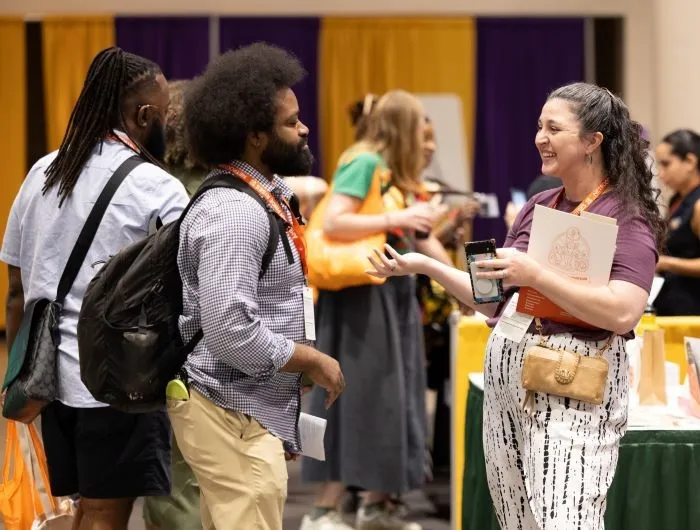
Netroots.
In 2025, food and health policy organizations across the country are being forced to navigate historic and devastating blows to the funding streams, infrastructure, workforce, and narratives around research and the crucial programs they inform. Community-level impact from today's divisive political climate is experienced alongside environmental effects of climate change, including increased frequency and severity of natural disasters.
In this moment, resilience as a key to progress has come to the forefront for advocates and organizers whose missions are grounded in equity and social justice. Those who have been historically disenfranchised, underserved, and forgotten by our food and environmental systems are on the front lines, loudly voicing the need for change in the face of what can feel like daily losses and catastrophe.
In Louisiana, local advocacy groups are sending a clear message: We've been here before, and we're ready.
Serving as a host city to a record-high (and increasing) numbers of visitors, the city of New Orleans buzzes with life, momentum, gathering, and community preparation for the upcoming 20th anniversary of Hurricane Katrina. Local organizations come together to organize several commemorative events honoring the residents, neighborhoods, and grassroots groups who drove the city’s recovery in the face of clear gaps in emergency management at the federal level.
The sheer history and energy of many intersecting local challenges, movements, and policy-aimed efforts serve as an important reminder that, while troubling news continues pouring out from Washington DC, power remains with the strengthof people walking alongside their communities, at the state and local levels.
CSPI’s partners are doing crucial work around community Powerbuilding and farmer advocacy;
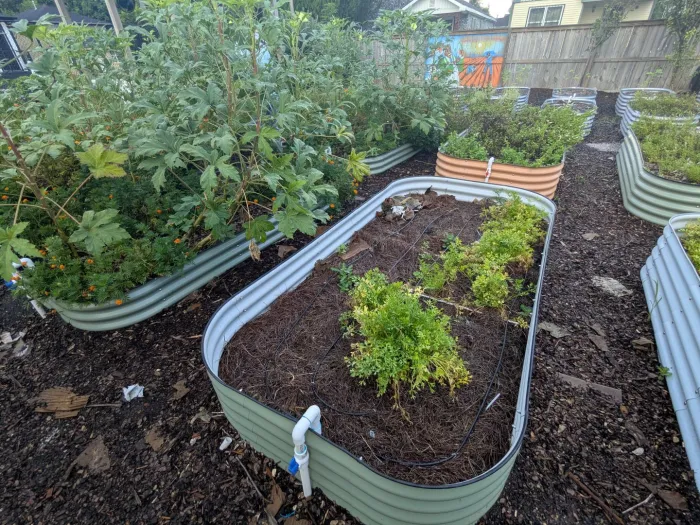
CSPI's partners at Sankofa Community Development Corporation (Sankofa CDC), located within and serving the community in the heart of the Lower Ninth Ward of New Orleans, are in the thick of summer programming. They seamlessly coordinate monthly weekend wellness days hosted at their Wetland Park (coined “Second Saturdays”), healthy cooking classes at their Fresh Start Market in collaboration with Xavier University (“Xavier Culinary Pharmacy Series”), and are preparing to host a thoughtful gathering of community leaders to acknowledge each other’s role in restoring the local landscape, “
Since 2008 (three years after Hurricane Katrina), Sankofa CDC has been curating spaces, discussions, engagement opportunities, and educational programs, all with community members' needs at the forefront. These missions have been integral in fostering the healing and power reactivation of a community where the impact of Katrina was experienced intensely, unjustly, and disproportionately. Through gathering and building capacity for community leaders in housing, environmental science, finance, and community development, Sankofa CDC leads the way to move the needle on equitable neighborhood resilience and restoration, in part through their efforts to rebuild crucial wetland vegetation and reservoirs that safeguard communities from disaster-related impact.
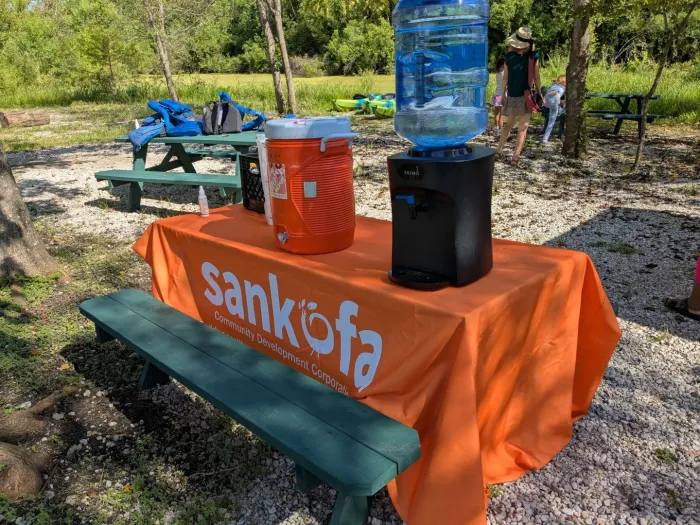
Sankofa CDC Executive Affairs and Special Projects Officer Michelle Wilkerson had spoken to CSPI previously about putting community powerbuilding front and center in their mission:
‘Sankofa,’ [the word] in itself,is a great example of powerbuilding because it is a term from the people of Ghana. It is a mythical bird that looks backwards to move forwards, and it just means go back and fetch.
And so for Sankofa [CDC], community powerbuilding means shifting the center of decision-making to the people most impacted and pulling from your history to inform your future. It's about building networks of trust and ensuring that our community members not only have a seat at the decision-making table, but are also building the table where the decisions are made. So it's all about long-term transformation and allows for solutions that are sustainable and rooted in the lived experiences of the people that we serve.
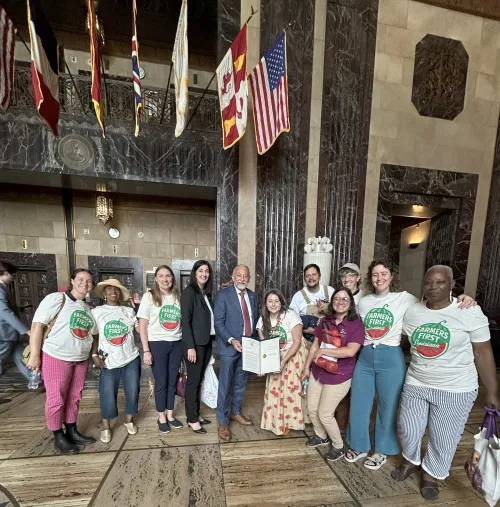
Across the river towards the state capital, another CSPI partner, the Louisiana Food Policy Council (LA FPC)—in alignment with their goals around shaping public policy to improve equity, opportunity, and collaboration in the local food system—launched a report summarizing community-voiced challenges to receiving Disaster SNAP (D-SNAP) resources for locals. In addition, the organization celebrates a massive policy win: The July passage of House Concurrent Resolution 205(HCR 205), otherwise known as “Farmers First,” along with $3 million in funding allocated through House Bill 1(HB 1), meaning dedicated support for farmers across the state. As per the Louisiana State Legislature, Farmers First offers “support for Louisiana farmers for their work in providing healthy food options, sustaining local economies, and promoting agricultural resilience through their dedication and innovation.”
LA FPC credits the bipartisan bill passage to a recent advocacy day, wherein farmers directly expressed to state representatives the need for such policies to foster a connection between those who grow food and their communities. Margee Green, Statewide Director for LA FPC, shared these reflections:
As a state, Louisiana has been and will continue to be disproportionately impacted by climate-related disasters, and our farmers are on the front lines. We are glad to see the Louisiana legislature take steps toward supporting the food system through this investment in farmers and hunger efforts. As we have learned from the past 20 years, change can be slow, but investments in community reap outsized rewards, especially when those communities lead the charge. Louisiana FPC will continue to work tirelessly toward a more just and equitable food system for all who grow, catch, cook, and eat the food that nourishes us.
LA FPC looks forward to celebrating this win with those farmers, state representatives, and other community leaders at an upcoming Legislative Session Re-cap and Roundtable on August 28th.
A national convening uplifting local policy power
Summer in New Orleans has been abuzz. The Netroots Nation conference, held from August 6th to 9th, 2025, serves as a space for discussion around the plethora of local advocacy efforts happening in the city, state, and region to advance grassroots activism and organizing. The Netroots annual conference is the largest of its kind that gathers politicians, non-profit leaders, online organizers, grassroots activists, and independent media makers for peer learning, training, and connection around advancing evidence-based, equity-centered policy change.
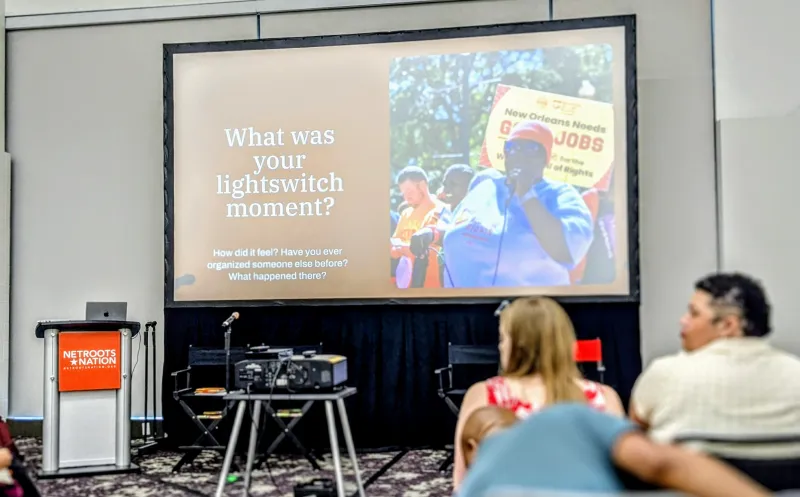
Conversations through the week uplift the unique challenges to advocating in the face of ongoing natural disasters, structural barriers, and obstinate opposition—only emphasizing the clear connectedness and strength of the Louisiana community that continues to push, speak out, and win. Advocates from around the US working in similarly challenging political landscapes to Louisiana share their stories, and the strategies that have bolstered their own local efforts. Similarly, hyper-localized efforts across Louisiana are spotlighted in several conference sessions, giving space for those local efforts to be uplifted and drawn upon by allies working across the country, and with various communities, issue areas, and organizational capacity.
Panelists leading a session titled “Organizing for Change: The Power of Local Organizing in the South,” navigated discussion around organizing in the face of notable political pushback in Georgia, and responded to questions from Louisianan audience members experiencing similar roadblocks in their own work. Another panel session spotlights the campaign, “No to Them All, Y'all,” where Louisiana organizers celebrate and reflect on an unexpected landslide policy win wherein local voters rejected four constitutional amendments by a staggering 30-point margin. In a screening and discussion of the film, “Underwater Projects,” participants explored climate resilience actions following major flooding in Norfolk, Virginia, drawing parallels to the needs and experiences voiced by those working in New Orleans.
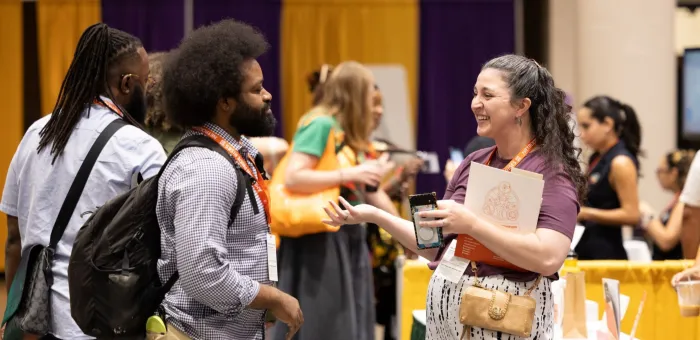
Activists, historians, and policy advocates leading environmental and climate justice movements play an important role in connecting singular policy issue areas—like food access—with broader systemic and structural inequities. In communities such as those impacted by Hurricane Katrina, impactful discussions around food, health, and nutrition cannot be had without open and inclusive spaces to reflect on the environment. And at Netroots, while calling on attendees to have courage in their own organizing and advocacy, Colette Pichon Battle, Founder and Co-Executive Director of the Gulf Coast Center for Law & Policy (GCCLP), native and multigenerational descendant of Bayou Liberty, Louisiana, and Netroots 2025 Keynote Speaker declares:
When you join us to remember on August 29th 20 years of Katrina, when you join us to say that you remember, we want you to use the hashtag, #wearethestorm. Because that’s what the community has said to this moment.
The storm did not stop us; we are the storm.Nothing is gonna push us back; we are the storm.
We’re not gonna stop moving and we’re not gonna stop going; we are the storm.
What can we learn, and what do we do next?
From Sankofa CDC in the heart of the Lower Ninth, to LA FPC passing policy serving the state and its rural communities, to the many others who gained ground in New Orleans through gathering, storytelling, and skill building, we can be certain that the power of activating state and local power cannot be underestimated.
In these moments of acknowledgement, remembrance, reflection, and learning, consider the following opportunities for advocacy organizations, community leaders, and policy researchers to take action:
1. Be part of the movement to uplift stories from the Louisiana community as we approach the 20th Anniversary of Hurricane Katrina. You can start by learning more about the local movement, and through participating in or hosting a National Moment of Silence on Friday, August 29th at 11am CST.
2. Reflect on your organization’s vision and if and how it centers, engages with, and gives ownership to the communities most impacted by its intended outcome. To read about how CSPI and our past Powerbuilding partners’ collaborative work and collective learnings in activating community power, visit our interactive website and cookbook of recipes.
3. Seek authentic partnership with local, community-based organizations who share stewardship of resources, programs, and movements with the community members they serve. To quote Tiffany Williams Roberts, Director of the Public Policy Unit at the Southern Center for Human Rights, and Netroots 2025 Panelist:
I am an organizer, and I know that organizing is our sauce. You all are our sauce. We are our sauce. [...] We need each other. So, my call to action to you all is: if you are not connected to an organization that is doing this work, get connected.
4. Remind yourself, those you partner with, and those you organize, that you are not alone in the work.Connecting with peers in communities experiencing similar barriers to advancing equity, health, and/or food-centered missions offers generative collaboration with the opportunity to propel your vision into its next step. Further, organizational resources can be best leveraged while learning from and sharing resources with allies, rather than re-inventing the wheel. As was boldly declared by April Verrett, President of the Service Employees International Union (SEIU), and Netroots 2025 Keynote Speaker:
This moment in our movement is not just about resistance. It's about construction. It's about the world we can and must build together. It's about moving from critique to courage, from self-righteous commentary to intentional community. It's about building something that outlives any one crisis or candidate. [...] Let's rewrite the rules. Let's stand on business. Let's stay in this thing until we win the world we all want and deserve.
Let's go get it.
Tags
Topics
Bethany (she/her/hers) manages CSPI’s relationships with state and local partners in the Southern region, providing guidance around equitable community engagement in food policy work and organizational power building. In addition to her role with CSPI’s partner network, including current and potential subgrantees, Bethany leads the Engagement Team’s efforts in internal capacity building to guide CSPI practices in community engagement across research, policy, advocacy, and cross-cutting issue areas. Through her work, Bethany contributes to CSPI’s missions of inclusivity, openness, accountability, kindness, and collaboration, with a strong skillset and passion to center the voices of those most impacted by food system inequities.
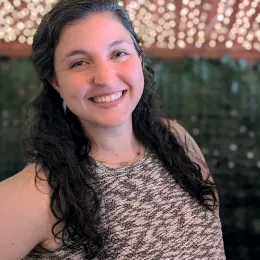
Bethany D. Williams, PhD, MSH, EP-C
Southern Engagement Associate
How CSPI is fighting threats to public health
The USDA’s Food Security Survey is irreplaceable
Government Accountability
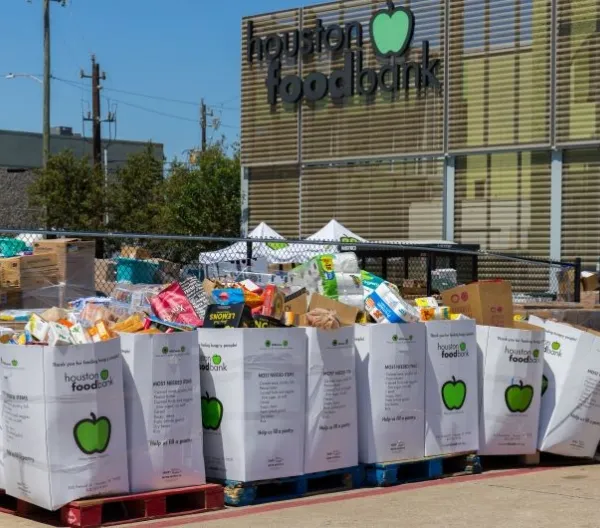
What changed in the new Dietary Guidelines & why it matters
Healthy Eating
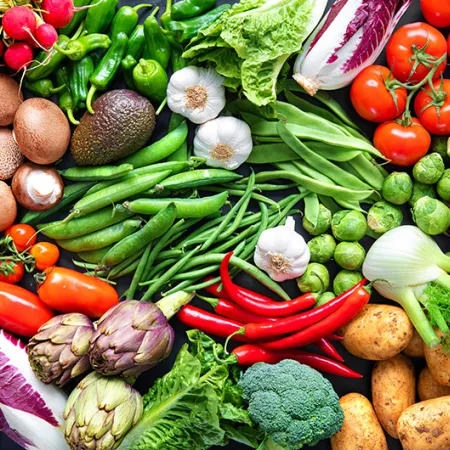
CSPI in 2025: Advancing food safety & public health for all
CSPI

5 things we want to see in the 2025 Dietary Guidelines
Healthy Eating
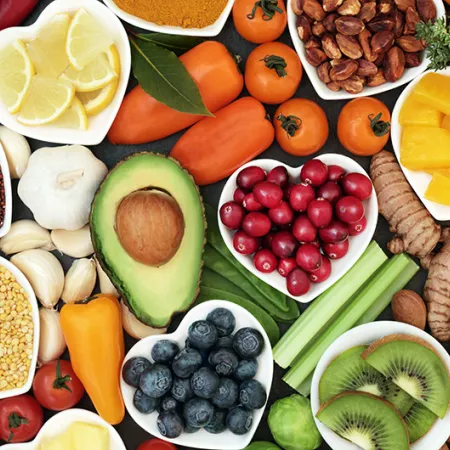
What the science says about Tylenol and autism
Fact vs. Fiction
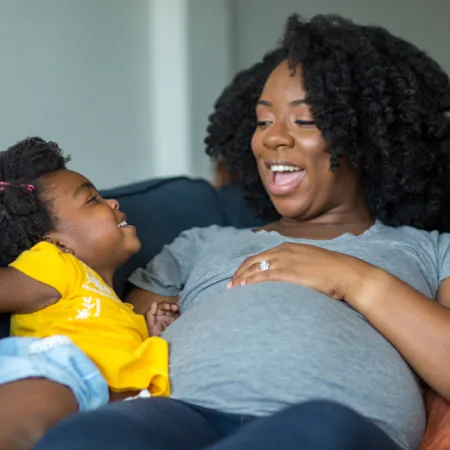
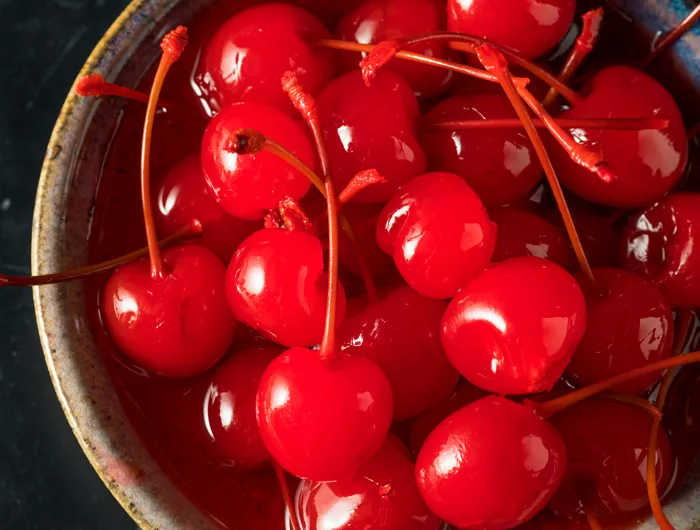
Stirring the Pot
Join the fight for safer, healthier food
Sign up to receive action alerts and opportunities to support our work in Stirring the Pot, our monthly newsletter roundup.

